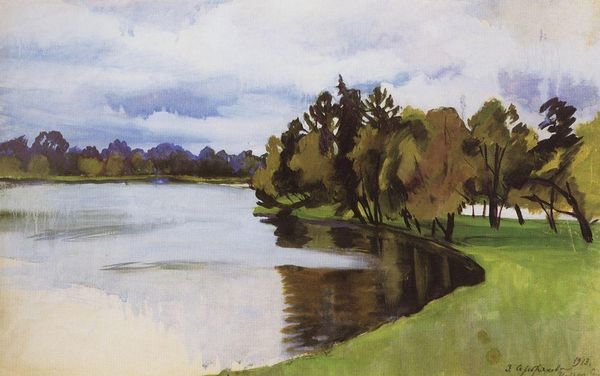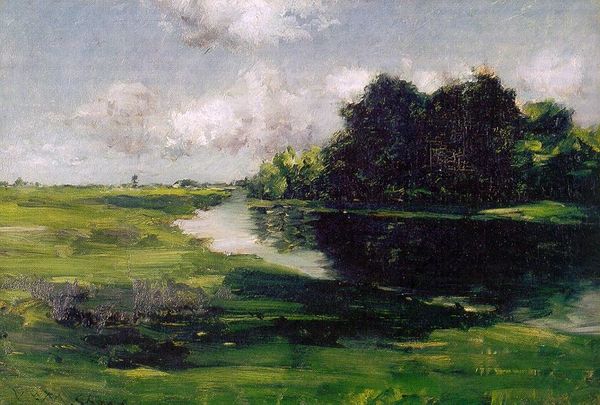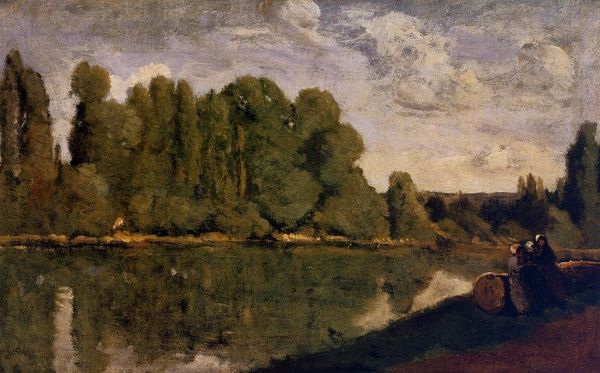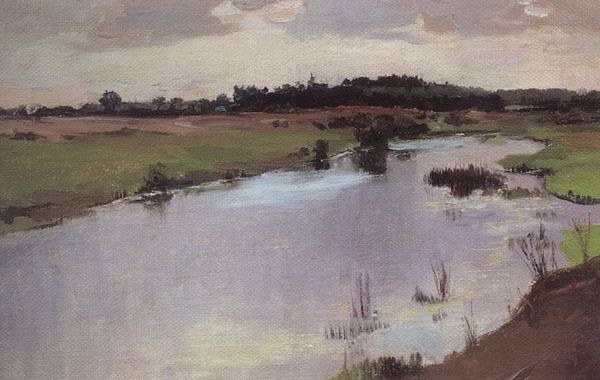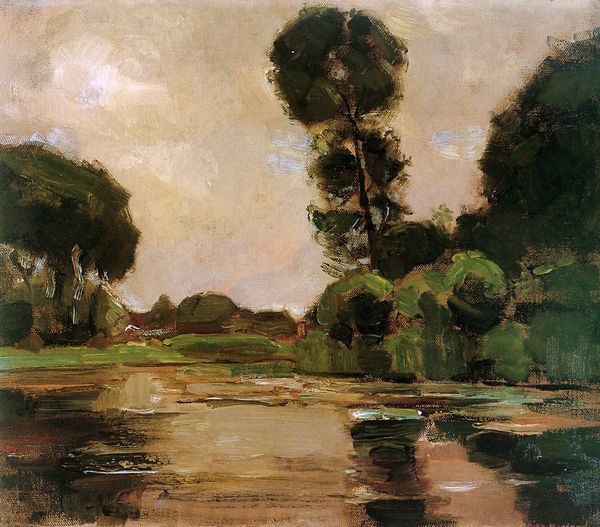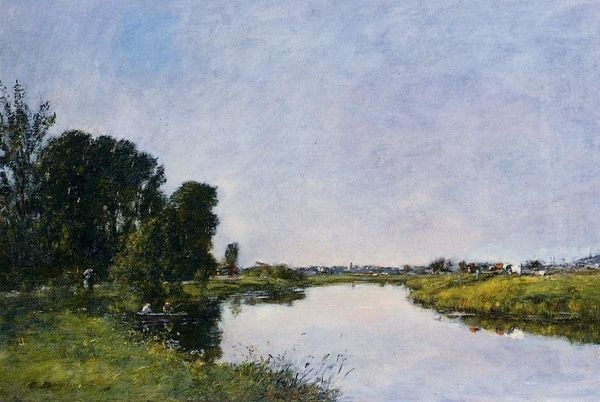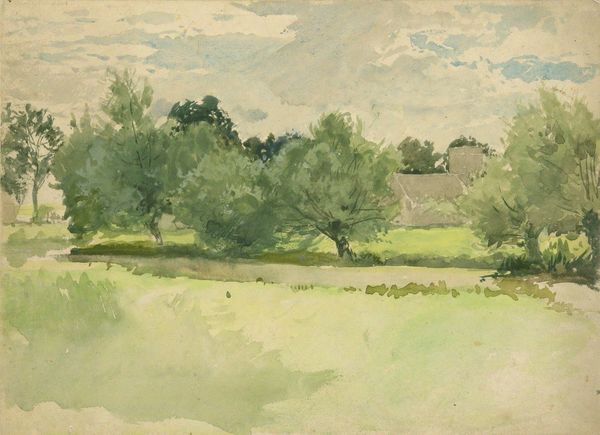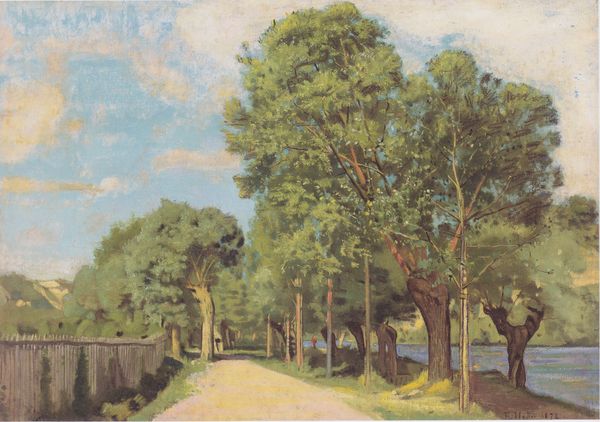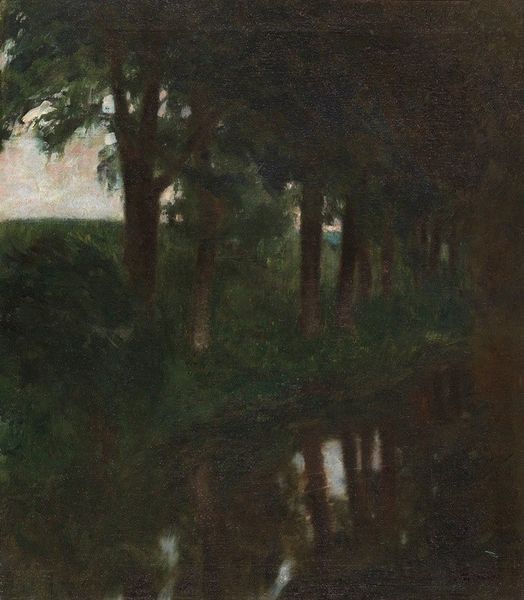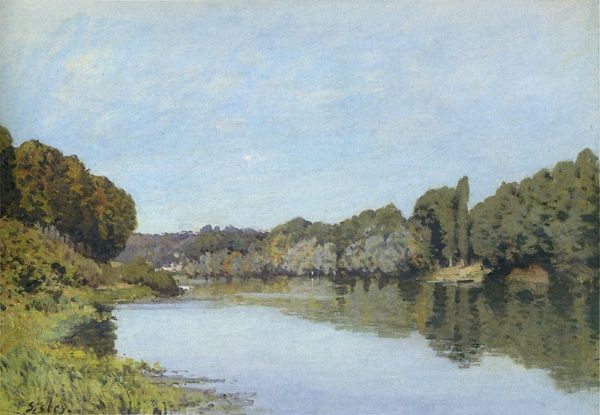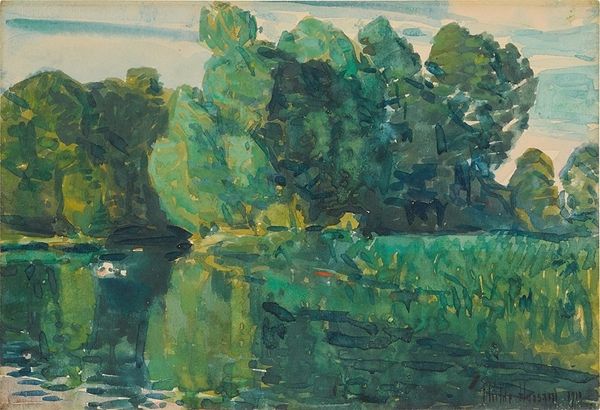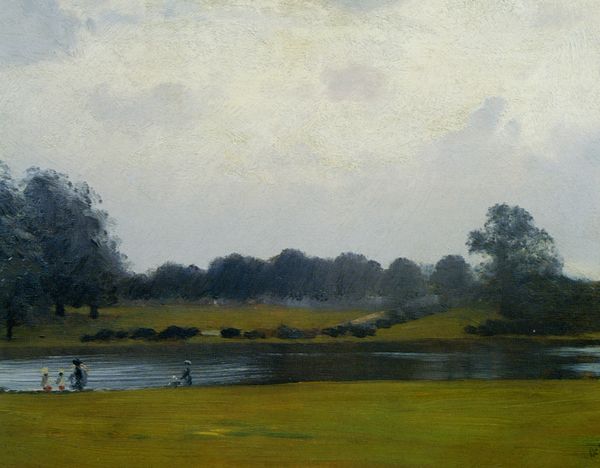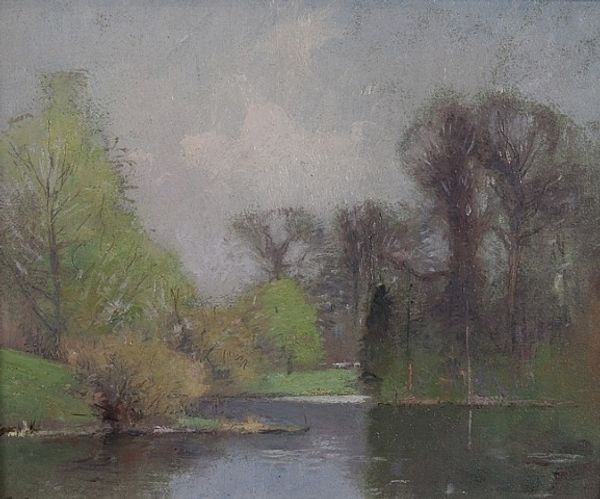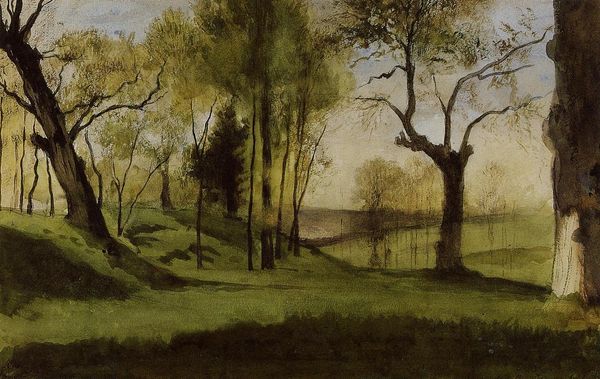
#
tree
#
garden
#
sky
#
lake
#
abstract painting
#
impressionist landscape
#
possibly oil pastel
#
oil painting
#
acrylic on canvas
#
underpainting
#
sketch
#
water
#
painting painterly
#
park
#
watercolour illustration
#
mixed medium
#
watercolor
Copyright: Anna Ostroumova-Lebedeva,Fair Use
Editor: This watercolor, titled "Pavlovsk. Rozopavilonny pond," by Anna Ostroumova-Lebedeva, evokes a sense of calm and quiet reflection. I’m really drawn to the way the artist uses the reflections on the water to mirror and almost double the landscape. What stands out to you most about this piece? Curator: What immediately catches my attention is how this watercolor participates in a larger cultural dialogue around landscape and national identity at the turn of the century. Pavlovsk, as a former imperial estate, held significant socio-political weight. What do you make of the artist’s choice to focus on a pond and gardens within this symbolic space? Editor: I suppose I hadn’t really thought about the political implications. I was just appreciating the visual aspect and how nature is reflected. It feels pretty apolitical to me. Curator: But is it? Ostroumova-Lebedeva was an established artist during a period of massive social change in Russia. Does focusing on this kind of scenery, with its history rooted in the aristocracy, subtly reflect or resist those changes? Was she perhaps trying to idealize a certain image of Russia? Editor: I see what you mean. So the act of even *choosing* this scene might have some commentary woven in? Curator: Precisely. Think about who traditionally had access to spaces like Pavlovsk and the gardens. Then consider, who would have viewed this artwork? Understanding these elements begins to open a deeper perspective. How might the public have responded to this imagery then, compared to now? Editor: I hadn't considered it from that perspective. Thinking about the political and social context makes the work feel so much more layered than I initially perceived. It’s more than just a pretty picture, isn't it? Curator: Exactly. That tension is crucial, even if not overtly expressed, between aesthetics and social context shapes how we understand art and its role in society.
Comments
No comments
Be the first to comment and join the conversation on the ultimate creative platform.
